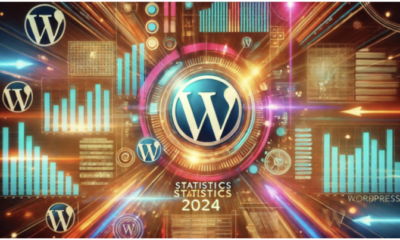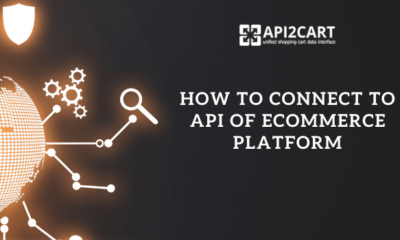TECHNOLOGY
Platform engineering brings self-service centre stage

Platform engineering defined
Platform engineering is the practice of building and operating a common platform for internal development teams to share and use for accelerating software releases.
In practice, there are slightly different views of platform engineering. But a common theme does emerge: Platform engineering bridges the gap between software and hardware (i.e. between Dev and Ops) – and platform engineers enable application developers to release more software innovation in less time with greater efficiency.[1]
Why self-service is so important in platform engineering and hybrid cloud
Self-service is both a hallmark in DevOps maturity and a key platform engineering attribute. It readily supports developer-driven provisioning of both applications and the underlying infrastructure.
In today’s world, application teams working in hybrid and multi-cloud environments require different workflows, tools, and skillsets across different clouds, leading to massive complexity. These challenges shine a spotlight on the growing demand for a unified approach to platform engineering and developer self-service.
According to Gartner, organisations often struggle to scale DevOps initiatives. In fact, by 2023, 90% of enterprises will fail to scale DevOps initiatives if shared self-service platform approaches are not adopted. To drive long-term DevOps success, Gartner recommends that infrastructure and operations leaders should not only consider appointing platform owners and establishing platform engineering teams but also build in self-service infrastructure capabilities that align with developer needs.[2]
Gartner also sees a continued acceleration of the trend toward self-service, recently noting that by 2025, 75% of organisations with platform teams will provide self-service developer portals to improve the developer experience and accelerate product innovation.[3]
The compelling benefits of platform engineering
Platform engineering teams apply software engineering principles to accelerate software delivery, thus ensuring application development teams are productive in all aspects of the software delivery lifecycle. By constantly examining the entire software development lifecycle from source code to test and development, to provisioning and production operations, they are able to build processes and platforms that enable application developers to rapidly provision and release software.[7]
Platform engineering also reduces time to market and complexity by providing self-service provisioning for infrastructure and applications while also simplifying operations of those applications in production. The team building and operating the common platform constantly innovates and provides best practices implementation, tools, and automation.[8]
Opening the platform engineering (Pandora’s) toolbox
Platform engineering teams use infrastructure automation and configuration management tools like Ansible, Chef, or Puppet to enable continuous automation that extends processes used in software development to infrastructure engineering. Infrastructure as code (IaC) tools such as HashiCorp Terraform have also played a key role in elevating the growth of platform engineering and platform engineering teams by codifying the tasks required to stand up new resources.
Legacy applications still make up over 70% of what is deployed globally and most of those are provisioned on-premises in customer datacentres. Organisations face challenges managing older VMware-based applications while also replatforming to cloud-native applications running containers or cloud-based PaaS services. Trying to maintain efficiency when bouncing between vCenter, Kubernetes platforms like OpenShift, and a variety of public cloud portals is unsustainable.
Unfortunately, like many toolboxes, organisations with a heterogeneous mix of hypervisors, clouds, operating systems, and automation technologies can end up never being able to find the right size wrench at the right time. The larger and more fragmented an organisation, the worse things get with different teams operating in silos. Choosing an orchestration platform from the same vendor that provides your hypervisor, cloud, or container platform opens up questions about competing interests. To get around this issue, many platform teams have tried to build home-grown self-service frameworks but ultimately, they become brittle, hard to maintain, and expensive to operate.
Enter Dell Technologies and Morpheus Data – a platform engineered for platform engineers
This unified solution allows the platform engineering and IT operations teams to quickly enable self service provisioning of application services into any private or public cloud. The Morpheus software is combined with Dell VxRail hyperconverged infrastructure to speed up your digital transformation and simultaneously improve your cloud visibility.
From Gartner’s perspective, as cloud adoption and agile initiatives accelerate digital transformation, organisations need infrastructure that can adapt to the rapid pace of change. Infrastructure and operations leaders should build infrastructure platforms by applying three guiding principles: adaptability, abstraction, and agnosticism.[10]
It’s at the confluence of these principles where the value of Morpheus comes so clearly into play – and where hybrid cloud management platforms need to evolve. Morpheus has been categorised as a hybrid cloud management platform (CMP) and in fact is a leader in this space according to analysts like Gartner, Forrester, ISG, and Gigaom. Morpheus is proven to help companies reduce cloud cost by 30%, provision 150x faster, assure governance, and deploy hybrid cloud automation in record time.
Moving beyond CMP, let’s take another look at that platform engineer toolbox. Instead of manually cobbling together disparate tools, Morpheus is a unified platform developed to bring those technologies together, so no more cobbling is needed. It helps newly burgeoning platform engineering teams fulfill their mission by simplifying how they provide self-service access to:
- Provision any service into any cloud on-demand: From single OS, VM, or Container to complex multi-tier applications with clustered layouts and cloud-native PaaS services.
- Easily build, manage, and consume Kubernetes: Use Morpheus K8s on any cloud. Launch EKS/AKS/GKE plus deploy or connect to OpenShift, Tanzu, Rancher, etc.
- Centralise Infra-as-Code and Configuration Management: Provide execution and governance of a heterogeneous mix of Terraform, Ansible, Chef, Puppet, Salt, vRO, etc.
- Consolidate catalogs and maintain CMDB records: Trigger via Morpheus GUI, API / CLI, DevOps pipelines, or ITSM (ex: ServiceNow) including CI updates.
For more information on Dell multi-cloud management with Morpheus and to request a platform demonstration please visit www.morpheusdata.com/dell or write to us at [email protected]
[1] The Rise of Platform Engineering; Software Engineering Daily; February 2020; https://www.getambassador.io/resources/rise-of-cloud-native-engineering-organizations/
[2] Gartner; How to Scale DevOps by Building Platform Teams; Refreshed 23 September 2020, Published 8 April 2019; ID G00382537 archived
[3] Gartner; Predicts 2022: Modernizing Software Development is Key to Digital Transformation; Published 3 December 2021; ID G00758298
[7] SRE vs. Platform Engineering; DevOps, GitOps, and the Rise of Cloud-Native Engineering; https://www.getambassador.io/resources/rise-of-cloud-native-engineering-organizations/
[8] Platform Engineering: Using it to Gain Competitive Advantage; Adarsh Shah; CompuZest; https://shahadarsh.com/2020/10/12/platform-engineering/
[9] Innovation Insight for Continuous Infrastructure Automation; Gartner; Published 27 April 2021; ID G00744529
[10] Gartner; How to Build Agile Infrastructure Platforms That Enable Rapid Product Innovation; Published 7 December 2020; ID G00733341
Want to learn more about cloud and cyber security from industry leaders? Check out Cyber Security & Cloud Expo. The next events in the series will be held in Santa Clara on 11-12 May 2022, Amsterdam on 20-21 September 2022, and London on 1-2 December 2022.
Explore other upcoming enterprise technology events and webinars powered by TechForge here.



















You must be logged in to post a comment Login